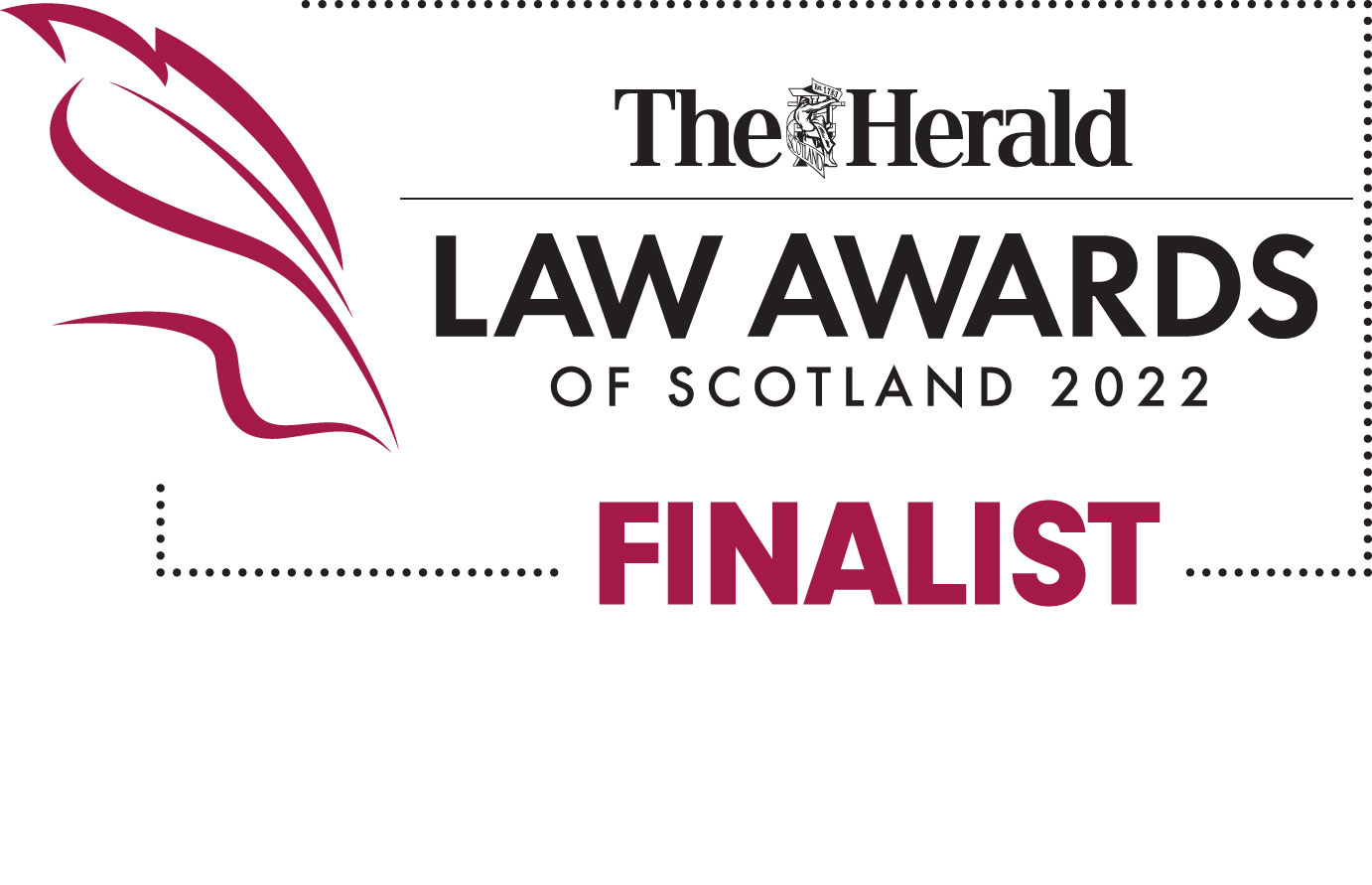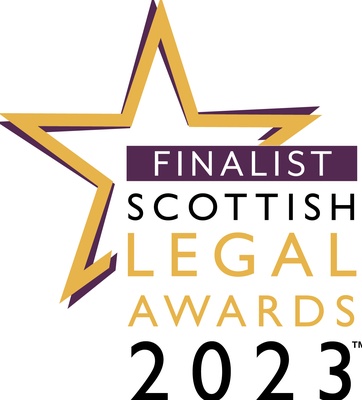Call us now: 0141 429 8166
Call us now: 0141 429 8166
Our Team of friendly and professional family lawyers are routinely asked to advise on the enforceability of minutes of agreement.
A “Minute of Agreement” or “Separation Agreement” is the name given to the contract drawn up by your lawyers which, once signed by both you and your former partner, will narrate the agreement reached in relation to all (or some) of the issues arising from your separation. For further information on what can be contained within a minute of agreement, please click here.
Once signed and registered within the Books of Council and Session, a minute of agreement is a legally binding document which, generally speaking, is enforceable.
Where you reach an agreement regarding your financial separation and record this in a minute of agreement then this is binding and can only be overturned in exceptional circumstances. It is extremely important therefore that you are satisfied with the agreement reached before you sign anything. It is always advisable to obtain legal advice prior to doing so. Seeking to overturn a minute of agreement is an extremely high test and should be avoided where possible by ensuring that you are certain that the agreement reached is fair and reasonable. If, after signing the agreement, the other party refuses to implement the terms, then you are able to raise court proceedings to enforce this. Should you require to do so, you can also seek the expenses of raising the action against the other party.
Where parties reach an agreement regarding the care arrangements of their children, this is not necessarily enforceable in the same way as the financial terms. If the other party refuses to adhere to the agreement reached regarding the children, you can raise a court action for residence/contact. Given that the needs and circumstances of children can change over time, the Court will not necessarily impose the arrangement which was reflected within the minute of agreement. The Court will require to consider the circumstances at that time and consider what is in the child’s best interests. This may be different from what you both agreed within your Minute of Agreement. The terms of the minute of agreement can be produced however and are persuasive to the court. It provides a good outline of the care arrangements which both parties felt were best for the children at the time of signature. Arguably, the more recent the minute of agreement was signed, the more persuasive it may be to the Court.
If you require further advice regarding enforcement of agreements, please contact our office where a member of our experienced family team will be happy to assist.
At Livingstone Brown, we are frequently asked to advise clients on the issue of Parental Rights and Responsibilities (PRR). This is an extremely important area of law. Our team of friendly and approachable family solicitors are skilled in advising clients in respect of their options relating to PRR and assisting them with how to move forward in the best way possible.
The Law in Scotland sets out the things that parents must do for their children (parental responsibilities) and the rights that parents have in relation to their children (parental rights). These rights and responsibilities are set out within Sections 1 and 2 of the Children (Scotland) Act 1995.
Parental responsibilities are defined as the responsibility:
(a)to safeguard and promote the child’s health, development and welfare;
(b)to provide, in a manner appropriate to the stage of development of the child—
(i)direction;
(ii)guidance,
to the child;
(c)if the child is not living with the parent, to maintain personal relations and direct contact with the child on a regular basis; and
(d)to act as the child’s legal representative,
but only in so far as compliance with this section is practicable and in the interests of the child.
Parental rights are defined as the right:
(a)to have the child living with him or otherwise to regulate the child’s residence;
(b)to control, direct or guide, in a manner appropriate to the stage of development of the child, the child’s upbringing;
(c)if the child is not living with him, to maintain personal relations and direct contact with the child on a regular basis; and
(d)to act as the child’s legal representative.
Scottish Law dictates when a parent will have parental rights and responsibilities and who else, other than a parent, can be given them. PRR are automatically conferred on the biological mother of a child. They are automatically conferred on the biological father of a child where he was married to the child’s mother at the time of birth or for children born after 4th May 2006, where the father is named on the child’s birth certificate. If you are an unmarried father of a child born after 4th May 2006 you will not automatically have PRR in relation to that child.
The first way in which a parent can obtain PRR is via a parental rights agreement. Section 4 of Children Scotland Act (1995) provides that the child’s mother and natural father can enter into an agreement conferring on the father parental rights and responsibilities. Section 4A of the Children (Scotland) Act 1995 makes a similar provisions for a second female parent. The mother of the child would have to be willing to do so and would have to hold full parental rights and responsibilities herself in respect of the said child. The agreement requires to be in a prescribed form and be formally registered. This is only open to the natural father of the said child or a second female parent. A parental rights agreement cannot be entered into with anyone else, even if the mother is willing to do so.
If a parental agreement is not possible, then it is open to a parent, or any other person who has an interest in the child, to apply to the local Sheriff Court or Court of Session and seek a court order for parental rights and responsibilities in their favour. Before making such an order, the Court would require to be satisfied that doing so would be in the best interests of the child and that it would be better for the child that the order be made than that no order should be made at all.
Parental rights and responsibilities are usually reserved for parents of the child or for persons who are in fact exercising day to day care of the child, i.e. grandparents with whom the child lives, step-parents, kinship carers. It is not generally necessary for anyone who is not a parent of a child or exercising care of the child, to obtain such orders.
Once someone holds parental rights and responsibilities in respect of a child, these can only be removed by Court order. PRR will only be removed in extreme circumstances. Again, before making such an order, the Court would require to be satisfied that doing so would be in the best interests of the child and that it would be better for the child that the order be made than that none should be made at all.
Please contact our family team who will be happy to discuss further.
If you or your family have been involved in a placing request that has been refused, you would benefit from technical legal advice from a solicitor to deal with framing of an Appeal correctly. Head of the family department, Julia Donnelly, and Senior Associate, Nicola Watson, are very experienced in this area of law and would be pleased to assist you and offer their advice. They have supported many parents by successfully challenging decisions of local authorities to refuse placing requests, and securing a place for their children in schools of choice.
We appreciate that choosing the right school for your child is one of the most important decisions you will make for them. We can assist you in providing legal advice and representation in connection with your rights to challenge refusal decisions before local authority Education Committees, and by appealing to the Sheriff against your Local Education Authority’s decision.
The ethos in this area is to focus on parental choice. There is a duty to secure that education is directed to the development of your child’s personality, talents and physical abilities to their fullest potential. The child’s views must be taken into account of their age and stage of maturity. The default position in the relevant legislation is that the Education Authority is prohibited from refusing a placing request unless one or more of specific statutory grounds are present, and even if these exist, the court can override these considerations and focus on the unique needs of the particular child.
With expert legal advice we can help you in presenting your case as effectively as possible to focus on the implications for your own child of exclusion from a school where it may be that he has siblings attending or can achieve the best possible education to meet his particular needs. In many cases in which we have dealt with, we have successfully persuaded the courts as to the necessity of overriding objections of the Education Authority and making a place available in the school of choice.
The law in this area has an extremely complex statutory framework developed by a process of amendment. There are several pieces of legislation such as the standards in Scotland’s schools etc Scotland Act 2000 which set out the Authority’s duty to secure improvements in the quality of school education. Such provisions together with the terms of the united convention on the rights of the child 1989 which expresses rights of children in respect of education can be relied upon in addition to the ethos of the Education Scotland Act 1980 dubbed the “parents charter” to support your case.
If you or your family have been involved in a placing request and need our help please do not hesitate to contact any one of us, and we can offer further help and advice tailored to your needs.
The breakdown of a marriage or relationship is a stressful time. If there is an element of domestic abuse within the relationship, it can also be a terrifying time. If you fear violence or harassment from your ex-partner, it is important that you are fully aware of the civil remedies which are available to you.
The orders which are open to an individual will often depend on a number of factors such as the nature of protection sought and whether or not you are married. For parties who are married, various protections are provided within the Matrimonial Homes (Family/Protection)(Scotland) Act 1981. For those who are unmarried, parties can benefit from the provisions of the Protection from Abuse (Scotland) Act 2001 and the Protection from Harassment Act 1997 in addition to various common law remedies.
We can assist you in various ways, for example by obtaining an interdict which would prevent your partner from contacting you, approaching you, coming to your home etc. At Livingstone Brown, we have extensive knowledge and experience in both raising and defending such actions and will gladly provide you with the benefit of our experience.
If you find yourself in a situation where you live with your spouse/partner and you are wishing them to move out following the breakdown of the relationship and they are refusing to do so then we can assist you with this.
If the parties are married then we can assist you in obtaining an exclusion order order which would suspend your spouse’s occupancy rights. This would mean that they would have to move out. If you are unmarried but cohabiting with your partner and the property is in joint names or jointly rented then the same principle applies.
If the house is in your partner’s sole name but there is a compelling reason as to why you should remain in the home and he should leave, then you will require firstly to apply for occupancy rights and thereafter seek to exclude him from the home. We can assist you with all of the above and more.
At Livingstone Brown, our dedicated team of Family Law solicitors will listen to your situation and advise you fully as to your options. We will guide you on the best and quickest way to obtain the protective orders sought, taking into account your family situation and your resources.
We deal with cases such as this on a frequent basis and have assisted thousands of people in difficult family situations. By instructing us you can be sure that you will receive advice from a solicitor with in depth knowledge in this area. We will ensure that steps are taken immediately for your protection. We pride ourselves on our proactive and efficient approach. If you come to see us with a problem which requires you to obtain urgent protection in the civil courts, we will have this raised and served on the opponent as soon as possible, often the very next day.
As one of the top legal aid firms in Scotland, we will quickly assess at your first meeting whether you are eligible for legal aid for the orders sought. If so we can guide you through the process and have an application submitted on your behalf the same day if required. In the event that you are not financially eligible for legal aid then we can assess the most cost effective way of obtaining the protection you seek.
With Livingstone Brown you can be confident that you are choosing a firm of solicitors who care about their clients. We listen to our client’s needs, provide them with accurate professional advice and act on our client’s instructions without delay.
For further information, please contact our office and ask to speak with one of our Family Law solicitors who will be happy to speak with you regarding your individual circumstances and needs.
With the ever-changing dynamic of the modern-day family comes the harsh reality that some family members are left behind. Grandparents play an ever-increasing role in their grandchildren’s lives, with around 69% of families relying on them to provide some form of childcare. Of course, having the love and support of a grandparent has a number of benefits, and there are some who take this nurturing relationship for granted. Our team of specialist family lawyers in Glasgow can help you get the best outcome possible. Call us today on 0141 429 8166 or complete our online contact form.
View our Frequently Asked Questions
Perhaps the most common reason is that the child’s parents have separated. With the child’s time being divided between parents, a grandparent’s contact quickly falls down the list of priorities. Unfortunately, statistics tell us that over 40% of grandparents lose contact following a separation, albeit for a variety of reasons.
In this situation, if you are a grandparent seeking contact and this cannot be agreed with the parent or parents, you should contact a solicitor as soon as possible. The quicker advice is sought the quicker the first steps can be taken to recommence contact.
The best solution is the one which addresses the root cause for contact stopping in the first place and creates a long term resolution that all parties are happy with. There are a number of options available to help resolve matters which do not include court action. It may be helpful for parties to attend mediation, allowing them a neutral platform to clear the air and sort out misunderstandings without the involvement of third parties who may be exacerbating the situation.
If matters cannot be resolved by agreement then the next step is to raise proceedings in court. Whilst grandparents do not have the same rights to contact as mothers and fathers, they do have an interest in their grandchild’s life and are therefore able to raise an action. The court will have regard to the background and all the circumstances of the case before coming to a decision whether or not to make an order that re-instates contact. Any decision reached is based on what is in the child’s best interests. The Sheriff may decide to reinstate contact which could include residential (overnight) contact or to allow contact through other means such as indirect contact. This means a grandparent is permitted to send cards and gifts to their grandchild and they are entitled to receive photographs and updates.
The Sheriff would also have the option to re-instate face to face contact at a contact centre on either a supervised or a supported basis, which is normally a temporary measure until contact builds up. Any decision the Sheriff makes will be made into a formal court order. This means both you and the child’s parents must comply with the Sheriff’s order. For example, if the parent refuses to make the child available for contact they face punishment from the court.
Each family is unique and therefore every case is different. At Livingstone Brown we understand this and provide expert legal advice uniquely catered to an individual’s circumstances. We will fully advise you of your options at the outset and can apply for Legal Aid funding on your behalf. If you're not eligible for legal aid, we will give you a clear indication of the likely costs so you can know what's involved before taking any action.
We have successfully helped many grandparents resolve disputes amicably and gain contact to their grandchildren.
If you are an estranged grandparent who wants contact with your grandchild, we can help. We have a team of experienced, professional family lawyers based across Glasgow who can advise you on the best options for you. Contact us to arrange a meeting with one of our solicitors on 0141 429 8166 or complete our online contact form today.

Livingstone Brown is a leading firm of Scottish solicitors. Based in Glasgow, but dealing with cases around the country, the firm has been at the forefront of legal service provision for over thirty years.
If you have a legal problem, getting good quality legal information at the earliest stage can be invaluable. The firm offers a free initial enquiry service; all you have to do is call in, telephone, or e-mail. You won't be charged for your enquiry; we'll let you know by return whether we can help, what we can do, and how much it's likely to cost. We can also offer legal aid where available.
Led by former senior partner Gerard Brown CBE, who continues as a consultant, the firm has built up an enviable reputation for quality of service and client care.
The firm has won various awards over the years. In the 2019 edition of the prestigious Legal 500 rankings Livingstone Brown was ranked as a 'top-tier' firm for general criminal work, and is also recommended for fraud cases. Stuart Munro and Gerard Brown were named as 'Recommended Lawyers'. In the Chambers directory the firm has a Band 1 ranking for criminal work, and Stuart Munro is a ranked financial crime lawyer. The firm was named Criminal Defence Firm of the Year and Family Law Team of the Year at the Scottish Legal Awards 2019.
Reliable, expert advice you can trust. Get in touch today










